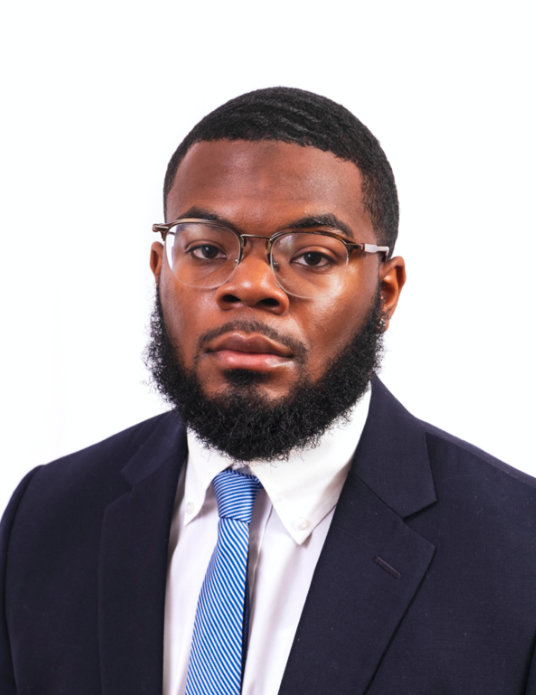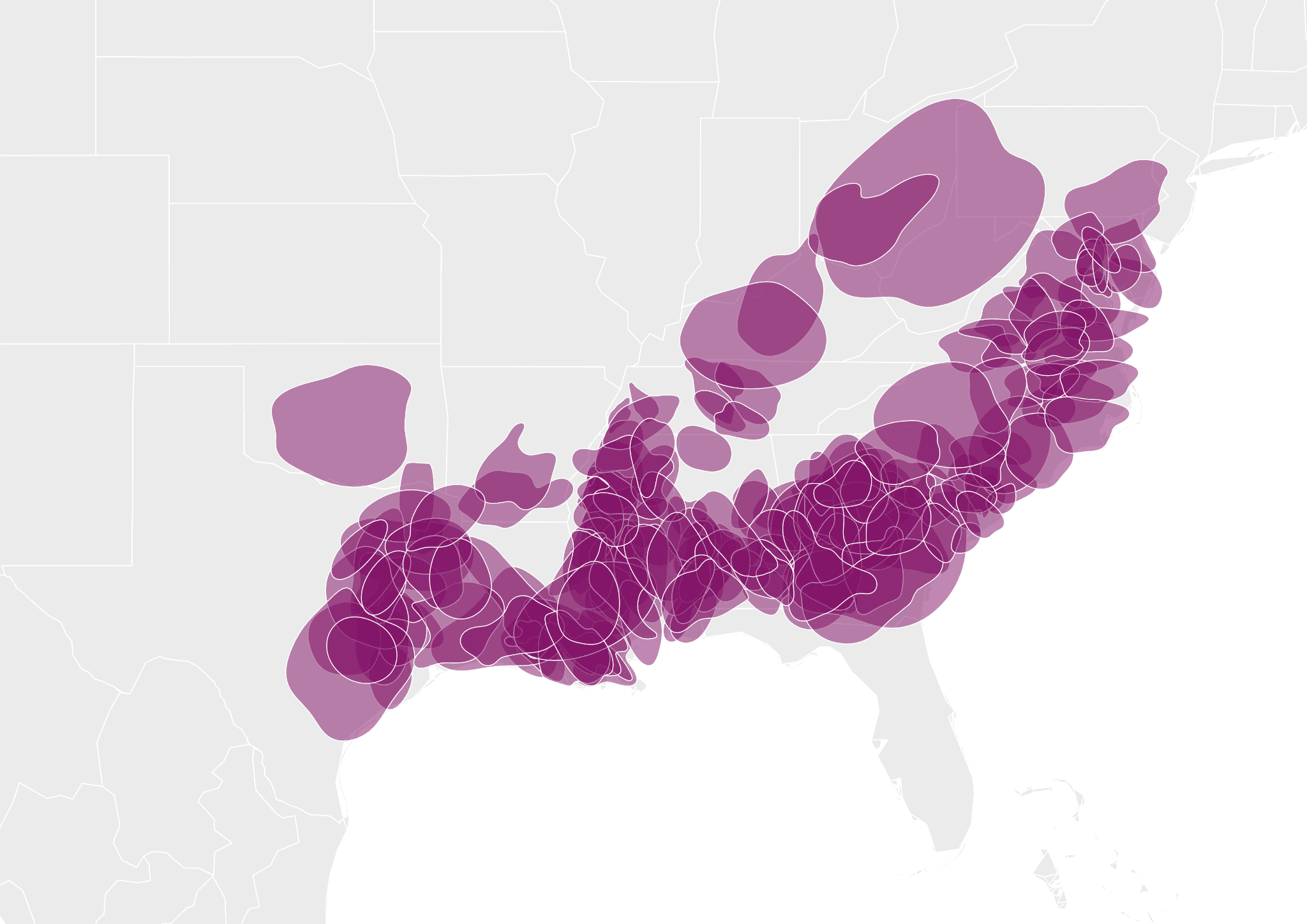23andMe’s new African American Genetic Groups feature leans heavily on science, but it also relies on the well-crafted writing of Jalen Robinson, a third-year medical student at Morehouse School of Medicine who worked over the summer as an intern with the 23andMe Research Equity and Partnership team and helped build this feature.

Robinson, from Newton, Georgia, a rural community of 600, knows a lot about what places like his own hometown and others like it have to offer. Proud of where he comes from, he’s also motivated to give back and decided to go to medical school partly because he saw how the lack of access to healthcare in his community had affected the lives of friends and family members who died of preventable diseases. Becoming a doctor allows him to improve access to medical care in rural and underserved communities in the South.
His work on the African American Genetic Groups feature isn’t about healthcare but about recognizing these communities’ cultural, political, and historical importance.
We sat down with Jalen to hear a little about what he learned during this project and what he hopes customers will use this feature.
Why Medical School
- You were motivated to attend medical school because you saw how a lack of access to healthcare in rural communities like yours costs lives. It’s not a parallel, but many small communities feel forgotten. Would helping people reconnect with their roots help people seeking to make these connections and communities?
Absolutely! I believe that helping people reconnect with their roots can be incredibly powerful for both individuals and communities. Growing up in a small town, I’ve experienced the deep pride and identity tied to shared history and values. Fostering these connections empowers residents to advocate for better healthcare and resources.
When people understand and feel more connected to their roots, they often become more engaged in their community’s well-being. This can lead to increased support for local healthcare initiatives, participation in outreach programs, or even a return home to contribute to the growth of their communities.
Ultimately, I hope this reconnection fosters a stronger sense of community ownership and collaboration. By working together, communities can identify their needs and develop solutions, ensuring everyone feels heard and has access to the care they deserve. Beyond improving health outcomes, this renewal can enhance the community spirit, creating a cycle of support and growth.
Researching African American Genetic Groups
- You wrote up the descriptions of these broader African American Genetic Groups. Did you learn anything you didn’t already know or were surprised during your research?
Yes, I definitely learned a lot, which surprised me during my research. Growing up in southwest Georgia, I was unaware of the variety of genetic groups present in Georgia and throughout the southeastern United States. I didn’t realize how historical migration patterns have shaped genetic variations or how significant the influence of different regions and ancestral backgrounds has shaped the current genetic landscape.
During my research, I was particularly struck by the lasting impact that African Americans have had on culture, food, dance, music, language, and more. My purpose for this content section was to acknowledge the history of slavery and its role in the migration of African Americans to these areas while primarily highlighting the contributions and unique aspects of African Americans within these different groups.
As I explored each genetic group, I was amazed by the rich histories associated with them. I discovered various languages, cuisines, and pastimes that reflect this heritage. Learning how African ancestry is celebrated through numerous parades, festivals, and events was inspiring. Additionally, I found that people can experience this history firsthand by visiting museums and historical societies dedicated to preserving and sharing these stories.
The African American Experience
- One of the fascinating aspects of DNA is that beyond just telling you about genetic predispositions or your ancestral background, it can reveal historical events, migration, and, as 23andMe’s Steven Micheletti has shown with his published work, the impact of the Transatlantic Slave Trade. What aspect of America’s history do you think this new feature reveals?
One of the most significant aspects this new feature reveals is the complex nature of the African American experience throughout history. By tracing genetic connections and migration patterns, we gain insight into the lasting impact of historical events like the Transatlantic Slave Trade and how they shaped family lineages and communities.
This feature encourages uncomfortable conversations about events often overlooked in history. It allows us to confront the realities of slavery and understand how African Americans migrated to various regions within the U.S.
Moreover, it highlights the resilience of African Americans and their substantial contributions to communities. Their lasting impact is evident today in culture, language, food, music, and celebrations that honor African ancestry. Additionally, this feature gives individuals previously unaware of their ancestral lineage the chance to explore the genetic groups they are matched with, fostering a greater understanding and a deeper connection to their heritage. This newfound knowledge can empower people to celebrate their roots and fully engage with their cultural identity.
Insights from 23andMe
- You’ve used 23andMe, what did you learn most helpful for you?
Using 23andMe has been incredibly insightful for me. One of the most helpful aspects has been the ability to trace my ancestry and understand the diverse genetic backgrounds that contribute to my heritage.
As an African American male, I knew my roots traced back to Africa, but it was exciting to pinpoint specific countries and see the percentage of my ancestry from each. I also found learning about my European, Indigenous American, and Caribbean ancestry composition fascinating. Discovering the specific genetic groups I’m connected to added even more depth to my understanding of my heritage.
I recently received my results, which showed a high probability of my ancestry being linked to African Americans from Mitchell and Baker Counties. This made sense, given my family’s long history in Baker County.
However, I was surprised to find a 99 percent probability match to the Savannah River Basin African Americans genetic group, which includes Edgefield, Aiken, and Saluda counties in South Carolina, near the Savannah River that forms much of the South Carolina-Georgia border. I didn’t know of any ancestors from that area, so this discovery opened up new avenues for tracing my roots and exploring whether my ancestors might have migrated to Baker County.
Some Surprises
- You also recently reviewed your ancestry results with Steven. What stood out as the most exciting thing for you and your family?
In addition to understanding my ancestry composition and specific genetic group connections, the health reports were the most exciting aspects for my family and me. My paternal family has a history of various cancers, while my maternal family has a history of diabetes and cataracts. I’ve always been curious about my risk for specific health issues.
The health report revealed that I had no variants detected for certain types of cancers 23andme tests for, which was reassuring. However, it noted that I am at elevated risk for Type 2 diabetes, something I was already aware of. Interestingly, I also had two variants detected for age-related macular degeneration, which indicates a slightly increased risk of developing that disorder. Additionally, I carry one of the two genetic variants tested for APOL1-related chronic kidney disease.
Before the health report, I was unaware of these findings and didn’t know I was at risk for these conditions. With this knowledge, I am empowered to take proactive steps and consult with my medical providers on ways to reduce the risk of developing them.
What Others Might Learn
- What do you hope customers take away from using this new feature?
I hope customers gain a greater sense of identity and belonging using this new feature. I want them to learn more about their ancestral composition, discover where their ancestors originated from, and understand any potential health risks they may face.
This knowledge can empower them to connect more deeply with their heritage and make informed decisions about their health and well-being.




